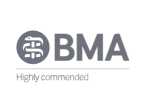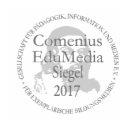How to perform arthrocentesis on a joint
In this Medmastery article, learn about the basic arthrocentesis procedure, and the tools you'll need to tap a joint.
Editors:Shelley Jacobs, PhD
Peer reviewers:Franz Wiesbauer, MD MPH Internist
Last update19th Nov 2020
Identifying the tools for an arthrocentesis
Performing an arthrocentesis is also called tapping a joint. To tap a joint, you will need several tools:
- A 25 gauge (G) needle and a 3 cc syringe for anesthesia
- Lidocaine or ethyl chloride freeze spray for anesthesia
- Sterilizing solution (e.g., chlorhexidine)
- Sterile gloves
- Sterile drape
- Fluid collection container (e.g., urine collection cup)
Figure 1. To perform an arthrocentesis, you will need several tools such as a 25 gauge (G) needle, a 3 cc syringe, anesthesia solution such as lidocaine or ethyl chloride, sterilizing solution, sterile gloves, sterile drape, and a fluid collection container.
So, now that you know what you need to perform an arthrocentesis, what do you do with these tools?
Become a great clinician with our video courses and workshops
How to perform arthrocentesis on a joint
The arthrocentesis procedure requires seven simple steps to ensure a safe, clean, and painless tap:
- Mark your site by pushing a needle cap on the skin to create a landmark for the needle.
- Put on sterile gloves and lay down a sterile drape.
- Clean the skin with sterilizing solution, such as a chlorhexidine swab.
- Anesthetize the area with 0.5 cc of lidocaine or ethyl chloride spray.
- Tap the joint using a needle and syringe, sized appropriately for the joint you’re tapping.
- Remove the joint fluid and place in a container.
- Send the fluid to a lab for cell count, culture, gram stain, and crystal evaluation.
Figure 2. How to perform arthrocentesis on a joint. 1) Create a landmark by pushing a needle cap into your patient's skin to mark the site. 2) Use sterile gloves and drapes. 3) Sanitize the area. 4) Anesthetize the area. 5) Tap the joint. 6) Remove the joint fluid and place in a collection container. 7) Send the fluid to a lab for cell count, culture, gram strain and crystal evaluation.
Congratulations, now you know the tools and basic procedures for performing an arthrocentesis!
That’s it for now. If you want to improve your understanding of key concepts in medicine, and improve your clinical skills, make sure to register for a free trial account, which will give you access to free videos and downloads. We’ll help you make the right decisions for yourself and your patients.
Recommended reading
- Roberts, J. 2019. “Arthrocentesis”. In: Roberts and Hedges’ Clinical Procedures in Emergency Medicine and Acute Care. 7th edition. Philadelphia: Elsevier.
Become an expert


Highly commended by the British Medical Association
Awarded in the “digital” category of the BMA Book Awards - London 2017

